QuestionSusan, I have adopted a nurse mare foal. We have had him 2 weeks, he is now 10 weeks old. He was not handled by people at all before being taken from his mother. We could not touch him for the first 2 days he was home, but he quickly accepted brushing, rubbing, etc. and now can be touched, hugged, brushed anywhere, will pick up his feet (doesn't know what for, but that's o.k.) We have gotten a halter on him, and I would like to beging trying to work on leading. I have raised one baby, 21 years ago, but we had her mother(who we still have, she is 38 now), and she was handled by us from birth, so that was completely different. I have read that we need to begin leading with a rope around his butt, but he gets terrified and wants to go up, not forward. He fights any pressure on his face or head, and I don't want him to get hurt or scare himself so badly that he won't let us near him. I also have a question about biting. In the 35 years I've had horses, I've never had a biter, but this colt has tried on two occasions to bite (it seemed in an aggressive action) not just curious lipping. I don't want to make him head-shy, as he is already a bit like that, whenever you touch his face, no matter how slowly you approach him. He will allow face touching after some neck stroking, then going up towards his ears, and then down the sides of his face, but then he tries to nip. I appreciate any advice, as I don't want him to get worse about his face, but I also can't have a biter on my hands, and need to know how to correct this the right way. Thank you for you help. Betsy
AnswerHi Betsy!
Congratulations on your new baby! It sounds like you're on the right track with brushing and grooming him - good job there. The biting is a common issue with foals, particularly orphan foals. When he bites, use your fingers to flick his mouth. Don't worry about making him head-shy; biting is too aggressive a behavior to allow to continue. If he persists after you start flicking him with your fingers, don't hesitate to give him a quick, sharp slap right on the muzzle. Obviously, you don't want to go overboard, but a smack is much milder than what a mother horse would do to a biting foal! For now, you shouldn't allow him to get into the habit of lipping, either, since he doesn't have the judgment of when to stop and lipping turns into biting often. BE firm and consistent with him on this issue because it's easy to deal with now, but much harder when he gets bigger! You don't want him to become a dangerous horse, and horses who are allowed to be aggressive with humans can be very dangerous. H needs to understand that you're the "mom" or "herd boss" and you make the rules, not him.
As for the leading issue, you really shouldn't be putting any pulling pressure on his head or neck yet, so a butt rope is essential. He may resist by trying to rear or back into the rope. If he does either of these things, give him a fast, sharp jolt on the lead rope straight down (called "ringing his bell"). This is a very useful and common training tool that you'll use over and over as you train him to lead, as he goes through the "terrible twos", and again when he reaches the adolescent stage (at around 4). What this motion does is put pressure on the top of his head and muzzle, and it stops a rear. It may take some work getting him used to the butt rope, so don't give up. Make sure you're giving him lots of pets and strokes when he takes even a couple of steps forward. If you have someone who can help you out, you can also try leading him normally while having your partner use the soft end of a lead rope to encourage him. Start softly with tapping him on the butt with the lead rope, and gradually increase the strength of the taps if he doesn't respond. Once he takes even one step forward, stop tapping with the rope on the butt and praise & stroke him. He'll begin to understand after a few tries. Don't give up, or you'll have a tougher time leading him the next time.
Hope this helps! Enjoy your new baby, and stay safe. That's the most important thing. Foals can be unpredictable, so never turn your back on him. Be firm and consistent, and give pats and strokes as rewards (never use food!). Good luck with him, and don't hesitate to write back if you have more questions.
--Susan

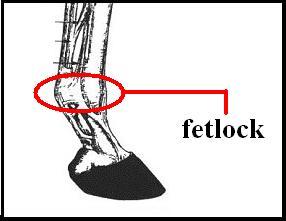 fetlock protection
QuestionQUESTION: hello madam, how to protect horse fet
fetlock protection
QuestionQUESTION: hello madam, how to protect horse fet
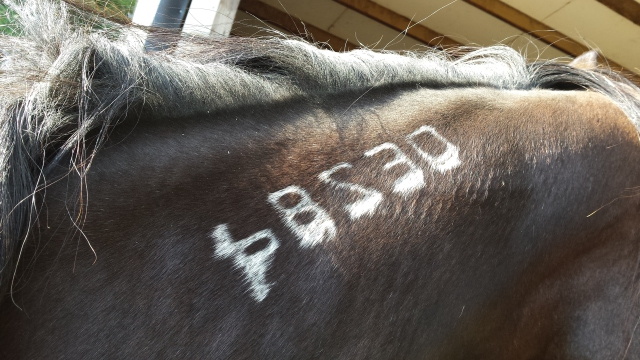 neck tattoo
Question1st mare
QUESTION: Have 2 mare that I ha
neck tattoo
Question1st mare
QUESTION: Have 2 mare that I ha
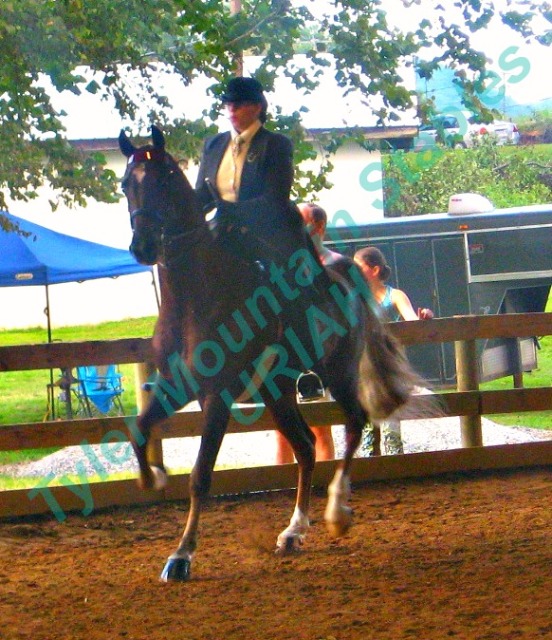 Double bridle prob.
Question
Uriah and Hope
I have a saddlebred and
Double bridle prob.
Question
Uriah and Hope
I have a saddlebred and
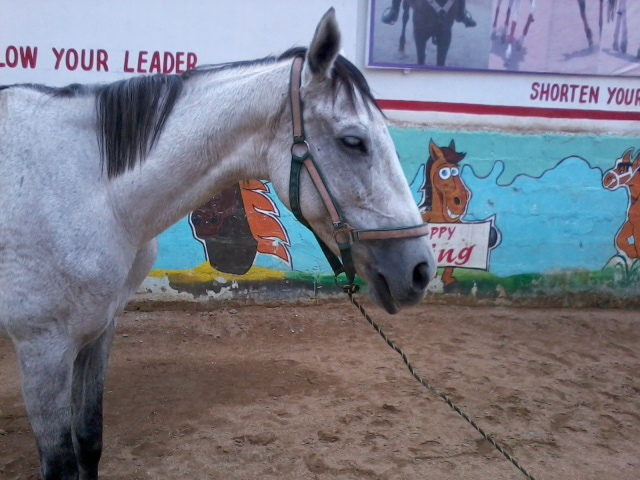 dull coat
Question
pic 1 pic 2
Hi Lisa. Sam here. My
dull coat
Question
pic 1 pic 2
Hi Lisa. Sam here. My
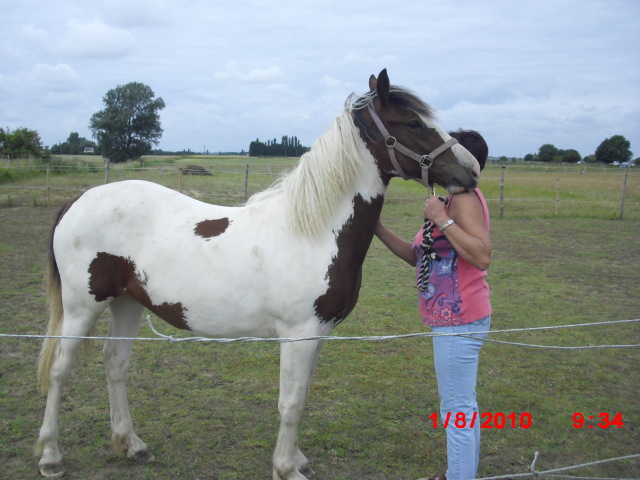 Wild Horse.
Question
My Crazy Horse
Hi, I have a 17 month old filly
Wild Horse.
Question
My Crazy Horse
Hi, I have a 17 month old filly